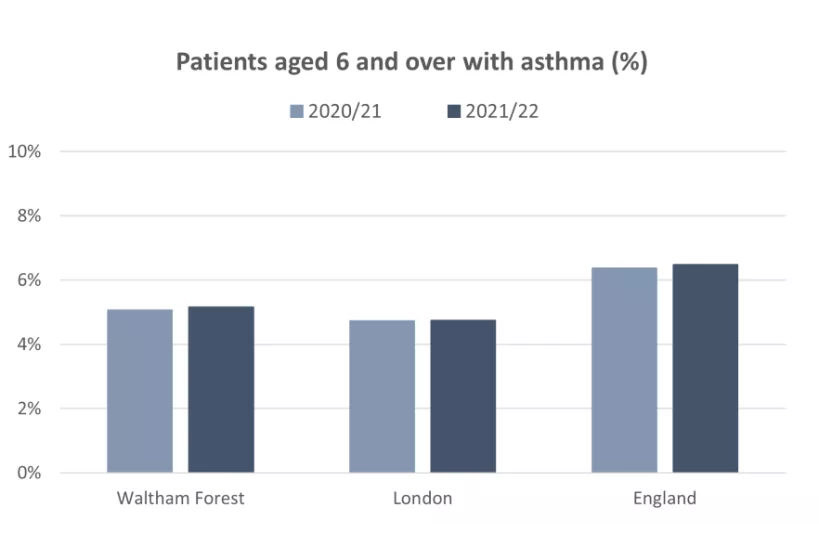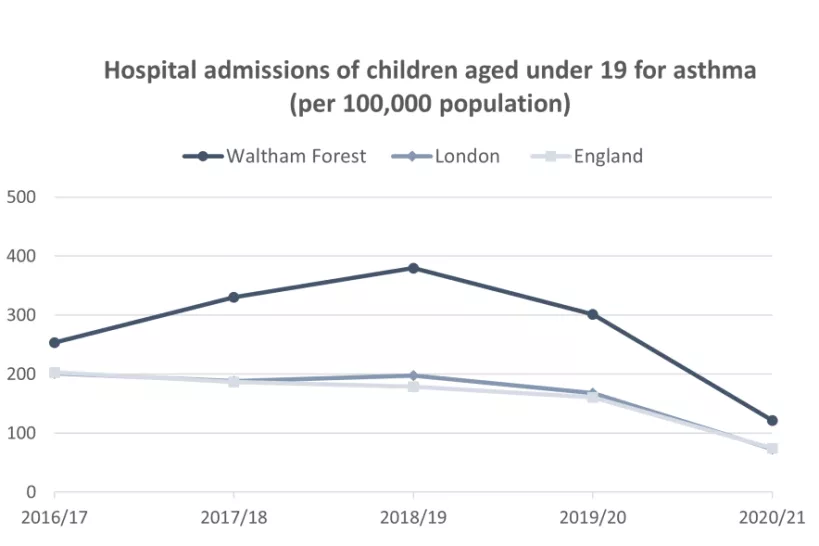Last updated: 4 December 2024
Next review: 4 June 2025
This content is part of the Waltham Forest JSNA. To see other JSNA content, visit the JSNA landing page
Asthma is a common, long-lasting inflammatory illness that affects the airways and can cause breathing difficulties. It is characterised by symptoms such as coughing, wheezing, chest tightness, and shortness of breath. Asthma attacks are an acute exacerbation of symptoms, which can happen randomly or after exposure to a trigger, such allergies, smoke, pollution, cold air, exercise, and infections like colds or flu.
Both genetic and environmental factors are believed to contribute to the development of asthma. It affects people of all ages and often starts in childhood (it is the most prevalent chronic condition among children and young people) but can also develop in adults.
Although asthma can normally be kept under control, it's still a serious condition that can cause several problems, especially for people with more severe asthma.
In 2021 to 2022, there were around 15,426 people aged 6 and over registered with a Waltham Forest GP that had been diagnosed with asthma. This is 5.2% of registered patients, a prevalence higher than the London average (4.7%) but below the national average (6.5%).

Source: OHID Public health profiles. Data from Quality and Outcomes (NHS Digital). Date accessed: 08/06/2023.
Note: Recorded disease prevalence on GP patient registers is influenced both by the underlying prevalence of the condition in the wider population and the extent to which these cases have been diagnosed and recorded on primary care systems.
Between 2018 to 2019 and 2020 to 2021, the incidence of hospital admissions for asthma in young people aged under 19 in Waltham Forest dropped significantly from 379 to 122 per 100,000 population. Waltham Forest has a higher hospital admission rate for asthma among children aged under 19 compared to regional and national averages. Hospital admission rates may be influenced by local variation in referral and admission practices as well as variation in prevalence. Also, the COVID-19 pandemic had a large impact on hospital activity with a reduction in admissions in 2020 to 2021.

Source: OHID Public health profiles. Data from Hospital Episode Statistics. Date accessed: 27/03/2023.